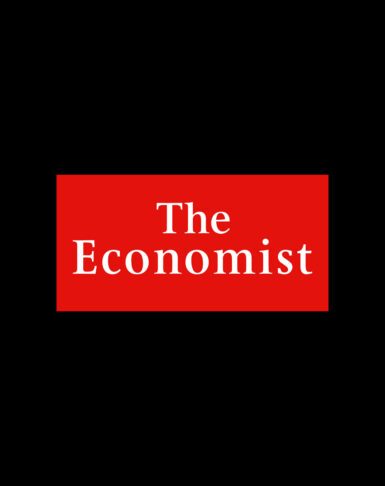A few years ago, the marketing landscape was a game of adaptation—keeping pace with the latest platforms, ever-changing algorithms, and responding to the shifting tides of consumer expectations. But in 2025, the rules of the game are changing again. The brands that win won’t just be those that are hyper-reactive —they’ll be the ones shaping the future.
In the game of never-ending adaptation, what’s clear is that we’re on the cusp of something big: a moment where technology, culture, and brand-building are colliding in ways we’ve never seen before.
As a global branding consultancy, we see it as our due diligence to keep a weather eye on the horizon – here’s where we believe things could be heading:
Personalise without being creepy
By now, we all know that AI is transforming marketing. But here’s the shift for 2025: it’s no longer just about automation—it’s about innovation. The brands that will stand out won’t be the ones using AI to cut costs, but the ones using it to create hyper-personalised, emotionally intelligent experiences at scale.
Brands need to strike a delicate balance—being an integral part of people’s lives without crossing the line into intrusion. The best personalisation isn’t about overwhelming consumers with hyper-targeted ads but about being genuinely useful to them in ways that enhance their experience rather than disrupt it.
The key? AI needs to feel human. Consumers don’t want interactions that feel robotic; they want brands that understand them, anticipate their needs, and engage with them in meaningful ways. We’re already seeing this with conversational AI—where chatbots aren’t just answering FAQs but becoming extensions of a brand’s personality. The challenge will be in balancing automation with authenticity.
Community over virality
For years, marketers have chased reach, measuring success by impressions, views, and follower counts. But 2025 is ushering in a new era: the age of engaged communities. Instead of trying to go viral, brands will double down on depth—building spaces where consumers feel a sense of belonging. The same can be said for the influencers promoting the product – they will no longer be required to simply “hold the product” but engage deeply on an authentic level.
Glossier built its empire by treating customers like co-creators, inviting them into the product development process. Nike’s Run Club has turned running into a social movement. Duolingo’s social media is less about corporate branding and more about fostering a language-learning culture. The takeaway? Consumers don’t just want content—they want connection.
The end of performance-first marketing
For years, we lived in the age of performance marketing. Every ad had a clear, trackable ROI. Every campaign was designed to drive immediate conversion. But that era is fading fast.
Why? Because paid media is getting more expensive, acquisition costs are rising, and privacy regulations are making hyper-targeting less effective. The brands that thrive in 2025 will be those that understand brand-building isn’t a ‘nice to have’—it’s a necessity. Look at Airbnb: when they shifted from performance marketing to brand storytelling, their revenue hit record highs. In a saturated digital world, emotional connection is the most powerful currency a brand can have.
Culture is the new battleground
Consumers are no longer just buying products—they’re buying into brands. And in 2025, the most successful brands will be the ones that stay culturally relevant without feeling opportunistic.
The trick to this is simplicity and consistency. If a brand only supports a movement when it’s trending, consumers will see right through it. The brands that win will be the ones who show up authentically, not just when it’s convenient, but consistently over time. Think of Ben & Jerry’s, which has made activism a core part of its DNA, not a fleeting marketing strategy.
The rise of brand-generated IP
Here’s a fascinating shift: brands are no longer just inserting themselves into culture—they’re creating it. We’re seeing this already with Nike’s ‘Air‘ movie, LEGO’s cinematic universe, and the explosion of luxury fashion collaborations in gaming. In 2025, more brands will move beyond traditional advertising and into full-scale storytelling, creating experiences that blur the lines between entertainment and marketing. Brands that tell stories in a clear, compelling way will be the ones that resonate.
What’s next?
For brands, 2025 isn’t just about keeping up—it’s about leading. The brands that succeed will be the ones that are trendsetters. Whether it’s through AI-driven innovation, community-led branding or cultural resonance, the future belongs to those who create something truly meaningful.
So, the question for every marketer is this: is your brand just reacting to change—or are you shaping what’s next?
Philip Davies is President, EMEA at Siegel+Gale.


